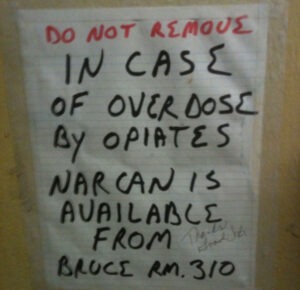
October 29, 2016; Forbes Contributors
When the term “innovation” is used in this country, it’s often linked to the idea of entrepreneurial behavior, as in single-leader-led. But an article in Forbes reminds us that real innovation in the social sphere tends to flow from a multi-disciplinary meeting of the minds. We have written about this issue on a number of occasions before.
The author, Tori Utley, takes as her example the opioid epidemic. Utley says that real change will ultimately take the cooperation of many different types of stakeholders. She says that social innovation that’s scalable and sustainable requires participation of all stakeholders, but then she adds “from all relevant industries,” and with that small addition, she drops a critical element of the success of such efforts.
Sign up for our free newsletters
Subscribe to NPQ's newsletters to have our top stories delivered directly to your inbox.
By signing up, you agree to our privacy policy and terms of use, and to receive messages from NPQ and our partners.
What Tori Utley is essentially referencing are the powerful cross-disciplinary and position-blind planning methodologies that were developed as far back as the 1940s and remain too seldom used. But these methods require getting the whole system in the room—not just the industries, but also those who are experiencing the real dynamics of the problem being discussed.
Utley clearly understands this, because when she goes on to discuss the necessary participants in such planning around the opioid addiction problem, she names a number of self-advocacy efforts—the efforts of people in recovery. This is hard to see as an industry but is clearly a necessary group of stakeholders.
In Utley’s example, she also discusses the need for collaboration but cites steps taken by an individual organization—in this case, an insurance company that eliminated the wait to be approved for opioid addiction treatment. This change is very likely the result of careful listening over time, but using large-scale planning methodologies, you can sometimes speed the process of change by bringing various participants into a peer-based dialogue, which is a foundation setter for a holistic approach. Unanticipated consequences or oversights in such a system of prevention and care could be controlled for or addressed through relationships and conversation.—Ruth McCambridge













